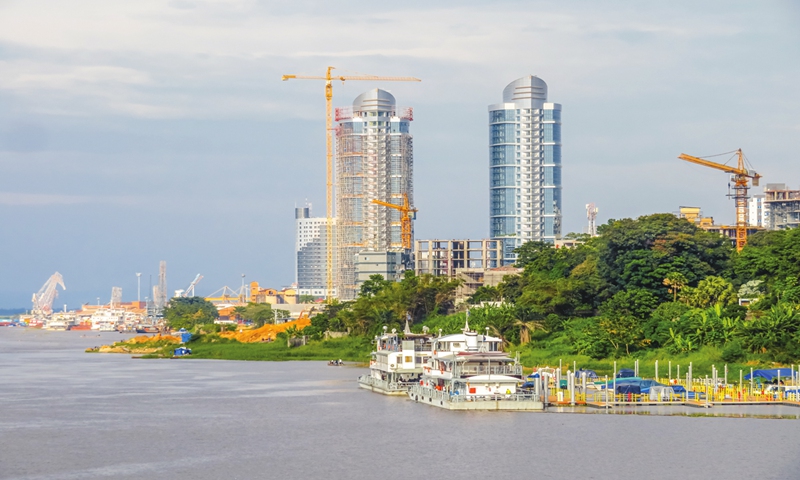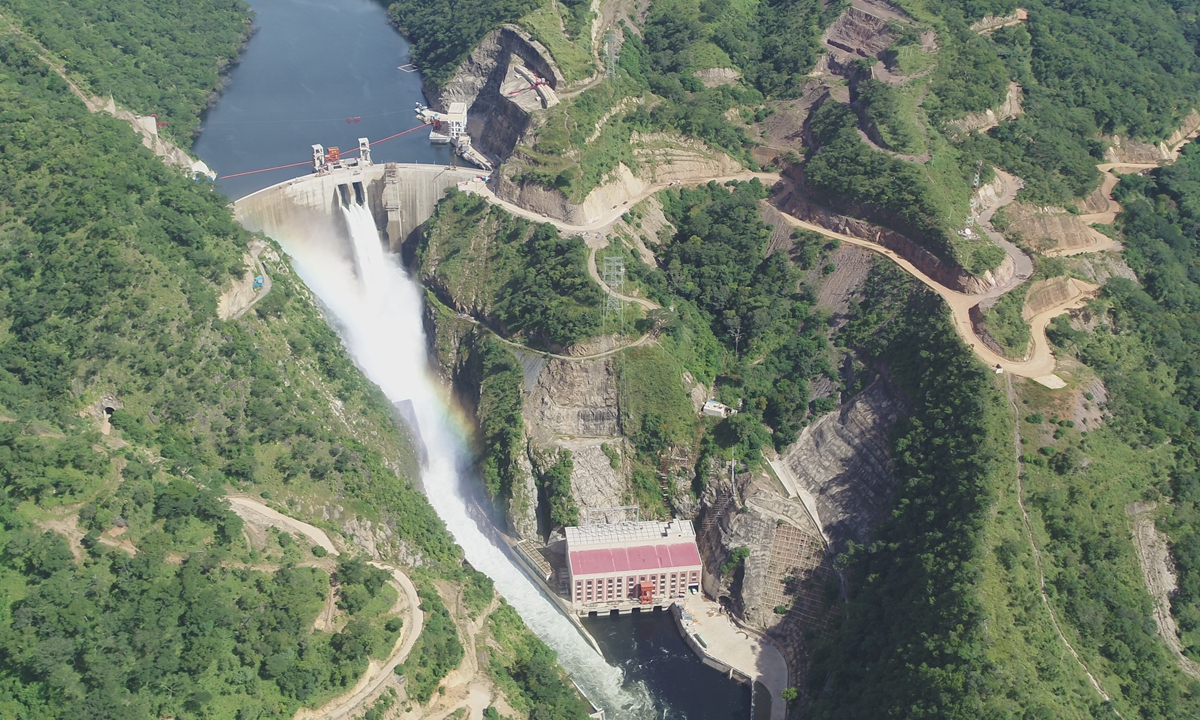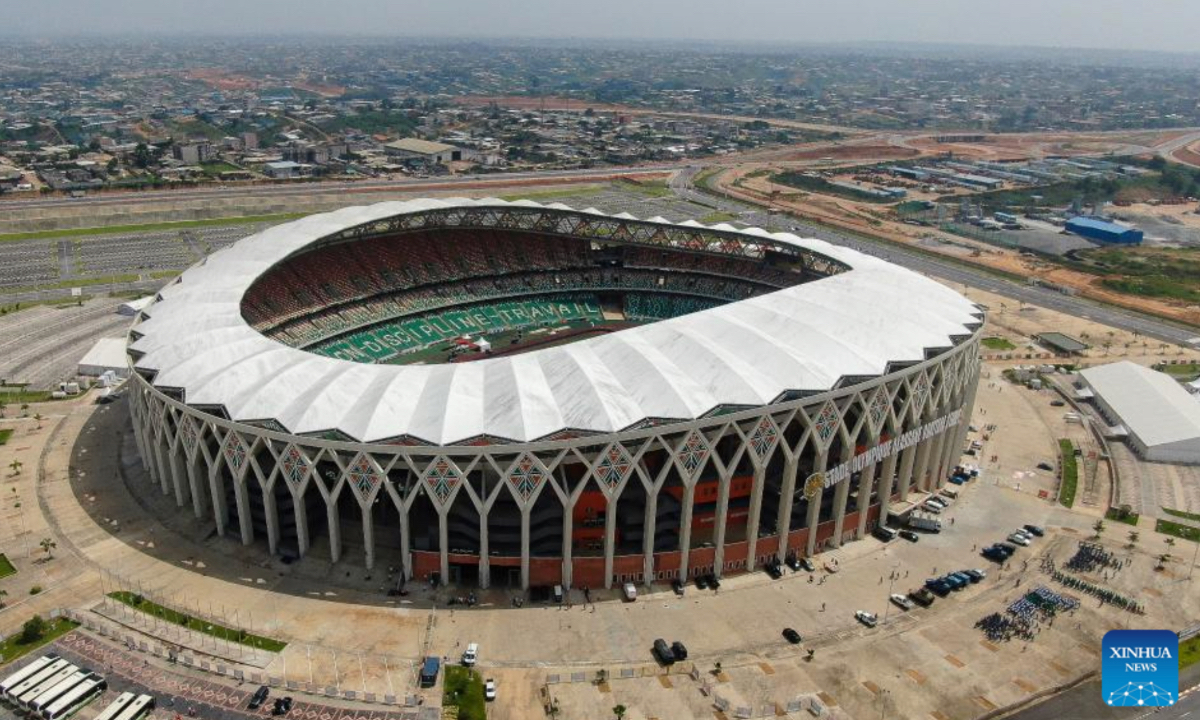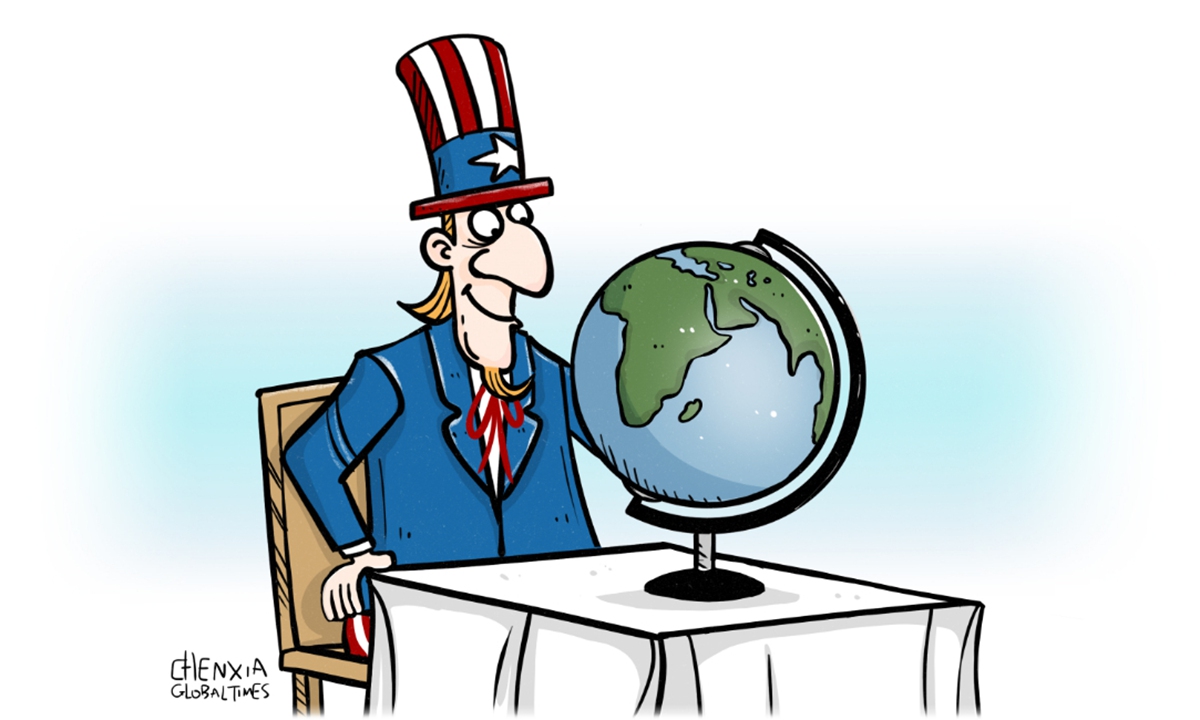Chinese firms aid African countries in overcoming devt hurdles, while US focuses on rivalry with China: experts
Africa seen by US primarily in context of rivalry with China: experts

A city view of Kinshasa, capital of the DRC Photo: VCG
A joint venture between China and the Democratic Republic of Congo (DRC) has recently unveiled plans to invest up to $7 billion in infrastructure projects within the African country. Experts noted on Thursday that Chinese firms have been a major source of aid for African nations under the China-proposed Belt and Road Initiative (BRI) in delivering infrastructure, addressing one of the most critical development hurdles the continent is being confronted with.
However, the US has positioned China as an imagined rival, engaging in what it perceives as a competition for influence with China in Africa, rather than focusing on what the African people truly need, leaving the question of which approach provides tangible benefits to the African people quite self-evident, experts said.
The joint venture, La Sino-Congolaise des Mines (SCM), announced the new progress on social media X (formerly Twitter) on Saturday, noting that this investment will be primarily used for constructing roads, and is conducive to achieving win-win cooperation between China and DRC, marking a significant step in driving new developments in bilateral cooperation.
SCM, an international mining company, was established in 2008 in DRC, and its investments in the country include mining projects and infrastructure projects.
The DRC spans an area roughly equivalent to Western Europe, yet its road infrastructure is severely lacking due to widespread poverty, corruption, and conflicts. Experts noted that establishing interconnected infrastructure is a crucial prerequisite for the development of the DRC and other African countries. This not only aids in connecting them to global markets but also facilitates trade among African countries.
Simultaneously, the DRC stands as the world's largest producer of cobalt, a crucial component in electric vehicle and mobile phone batteries. And it ranks as the third-largest copper producer globally, according to media reports.
During DRC President Felix-Antoine Tshisekedi Tshilombo's visit to China in May 2023, China and the DRC upgraded their bilateral relationship from a strategic partnership of win-win cooperation to a comprehensive strategic cooperative partnership. The DRC agreed to work with China to deepen cooperation in economy, trade, resources, infrastructure, medical care and other fields to enrich the comprehensive strategic cooperative partnership and build a mature, stable and groundbreaking relationship for the benefit of the two peoples.
Unlike some Western countries that have adopted a condescending approach, Chinese enterprises have been facilitating African countries in promoting the process of industrialization on the basis of equality and mutual benefit, experts noted.
Unwarranted smear
Unsurprisingly, some Western media outlets once again attemp to unjustly tarnish the mutually beneficial cooperation between China and Africa. Citing observers and Congolese domestic critics, US-based VOA said in a report that the new agreement "lacks transparency and is unfavorable towards Congo."
"The smear campaign by certain Western media against China-Africa cooperation is nothing new," Song Wei, a professor with the School of International Relations at Beijing Foreign Studies University, told the Global Times on Thursday.
However, as win-win cooperation between China and Africa deepens, African nations' attitudes and perceptions toward collaboration with China have become increasingly objective and independent. Against this backdrop, despite Western attempts to tarnish such cooperation, they could not shake the solid foundation of the long-standing friendship between China and Africa, Song said.
Chinese Foreign Minister Wang Yi visited four African countries from January 13 to 18. Carrying on a 34-year-old tradition since 1991, the African continent has been the destination for the first overseas visits made by Chinese foreign ministers each and every year.
Right after Wang's visit to Africa, US Secretary of State Antony Blinken flew to the continent and started a weeklong visit which has been widely viewed by observers as a move attempting to "compete with China for influence."
Blinken claimed that "we [the US] are all in when it comes to Africa" during the visit, Song pointed out that the US' strategy toward Africa is "fundamentally driven by competition."
As China-Africa cooperation continues to expand, the US has positioned China as an imagined rival, viewing Africa through the lens of competition with China. Their increased attention to Africa is more of an intensified competition for the so-called influence in the African continent, Song noted.
The truth is, due to geopolitical reasons and the inadequate business environment in Africa, the continent encounters challenges in becoming a top priority in US foreign policy, Song said.
However, China-Africa cooperation is built on a solid foundation, Song said, adding that the lack of infrastructure represents the primary bottleneck hindering the development of the continent. Under the BRI, increased Chinese investments in infrastructure development in Africa hold significant importance, contributing not only to reducing poverty but also to fostering independent development of African countries like DRC.
Tangible benefits
China Railway Resources Group Co, as one of the Chinese holders of SCM, has been investing in infrastructure development in Congo over the past years, contributing to the establishment of interconnected and public welfare projects.

Busanga hydroelectric power plant in Lualaba Province, the Democratic Republic of the Congo. Photo: Courtesy of China Railway Resources Group Co
One of the major projects the company participated in was the Busanga hydroelectric power plant, located in the southeastern province of Lualaba in DRC. The power plant was inaugurated in October 2023.With an investment of $656 million, the plant has an installed capacity of 240 megawatts, with an estimated average annual electricity production of 1.32 billion kilowatt-hours, approximately one-tenth of the total electricity production in the DRC, the company said in a statement it sent to the Global Times on Wednesday.
It has played a crucial role in promoting local economic and social development, the company said.
Several milestones were achieved during its construction, including being the first hydropower station in the DRC built entirely to Chinese standards, using Chinese equipment and technology. It is also the only hydropower station in the DRC operating under the Build-Operate-Transfer commercial model. The construction process of the power plant resulted in the authorization of 15 patented technologies, according to the company.
China enjoys a significant comparative advantage in infrastructure development worldwide. On one hand, it achieves lower costs, and on the other hand, China places significant emphasis on infrastructure construction and has accumulated extensive experience in the field, Song said.
Furthermore, Chinese contractors now have deep roots in Africa after many years of cooperation, offering them a more profound understanding of the continent's infrastructure requirements compared to companies from other countries, Song noted.
Africa stands as China's second-largest overseas contracting market, with Chinese companies having accumulated over $700 billion in signed contracts for construction projects, Jiang Wei, director of the department of Western Asian and African Affairs at the Ministry of Commerce, told a press conference on Wednesday.
These projects include both iconic projects and smaller, yet exquisite, projects, spanning transportation, energy, power, housing, and livelihoods, Jiang said.
Landmark projects such as the Africa Centers for Disease Control and Prevention, Zambia's Kafue Gorge Lower Hydropower Station, and the Foundiougne Bridge in Senegal have been successfully completed, significantly contributing to local economic and social development, the official said.



